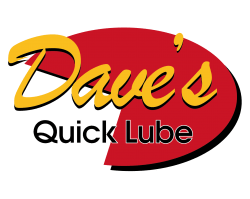If you own a car, you already realize the significance of having good oil in it. Oil is like your vehicle’s blood because it lubricates the engine’s components and organs in much the same way as blood does for your body’s organs. The proper oil circulating through the engine is essential for it to function. Oil not only keeps the engine’s components operating effectively, but it also helps to keep the engine cool by reducing friction.
If you look in your car’s owner’s handbook, it will tell you which type of oil to use in your engine. A numerical code indicating the viscosity of the engine oil, such as 10W-30, 20W-50, 5W-20, and so on may be found. The viscosity of your oil is important since it affects the thickness of your oil under particular pressures and temperatures. Oil becomes thicker in colder weather, making it more difficult to flow inside the engine. If you normally drive in chilly climates, you’ll want a thinner oil; but if you regularly travel through hot regions, you’ll need a thicker one.

What does engine oil do

Your car’s engine oil keeps it going in a variety of ways. It prevents heat and friction by lubricating engine components and allowing them to move freely. It also functions as a pump, drawing heat away from the combustion cycle as it travels throughout the oil.
Your oil will degrade with time as a result of constant usage, becoming thinner and more dirty, affecting the efficiency of your engine in terms of lubrication and performance. You must replace it at least once a year, whether you go to a service or if any of the problems listed below appear.
What oil to use
Check the manufacturer’s handbook or contact a local garage and get expert advice to see which oil is appropriate for your automobile. Because different sorts of oil have distinctive properties, you must use the proper one for your car. Oils differ in weight and viscosity (also known as viscosity), so you need to use the right one for your vehicle.
Using the wrong viscosity of oil
Putting in the wrong viscosity of motor oil is one of the most prevalent mistakes. Using oil that is too thick for your vehicle might prevent it from reaching deeper and tighter areas within the engine block, preventing it from lubricating components. This remains true after the engine has been running for a while and is still cold.
However, if the oil you’re using is too thin, it might degrade significantly quicker than usual as the heat of the engine may cause it to break down prematurely depending on the type of oil. When the oil begins to deteriorate, its capacity to protect moving components of the engine and lubricate them effectively will be lost.
If you add thicker oil to thinner oil in the engine, it will not outright harm your car. However, it may cause the manufacturer’s suggested viscosity levels to be violated, which isn’t desirable.
The Symptoms Of Putting The Wrong Oil In Your Car

It might be difficult to decide which oil is ideal for your vehicle’s engine. Because of the seasonal swings, certain months are hot and others are cold. As a result, in order to achieve the optimum engine performance possible, you may have to change oils on a yearly basis. Otherwise, if you use the wrong engine oil in your automobile, it could reduce engine performance and lead to accelerated wear and tear on its components.
The adverse effects of using the incorrect engine oil are immediately apparent. The following are the top five symptoms and what happens if you put the wrong engine oil in your car, in order of severity. If you see at least two or three of these warning signs, it’s time to change the oil in your automobile with a higher grade.
1. Your oil is leaking

Oil leaks are another indication that the wrong kind of motor oil has been used in your car. If your car wasn’t leaking any oil before but is now, this might suggest that the incorrect type of oil was used in it or that your gaskets and seals are failing.
Using synthetic oil in a car that is designed to run on conventional motor oil is one example. Synthetic oils have different flow properties than normal motor oil. This implies that synthetic oil has an easier time “squeezing” through tiger spaces than regular oil does. As a result, some oil may spill past certain seals and leak from your vehicle. While minor leaks are not dangerous, ignoring this for too long might result in more expensive repairs or additional trips to the gas station to get more oil.
2. It’s difficult to start your car when it’s cold outside

If you use inadequate motor oil for the weather, you may hear a ticking sound from your engine. This will usually be the most loud right after starting up and gradually fading as you drive around.
Because of this, the wrong amount of engine oil can fail to adequately coat and lubricate all engine parts. You’re hearing metal components such as valves and valve lifters collide against one another. Changing to a different oil viscosity for a while might solve the problem.
3. You’re hearing a ticking sound from your engine when it’s cold
Thick oil in a recently started cold engine, for the same reason as the one stated above, can cause components inside the engine to knock or ‘tick’ against each other when it idles. When the engine and oil have warmed up, the ticking sound will stop.
4. Your gas mileage isn’t what it used to be

Oil quality has a lot to do with how your vehicle drives, whether it’s new or old. Oil is thinner in some cars and situations, but there are distinct reasons for that. When your engine needs to pump oil that is too thick, it works harder than usual to generate the same amount of power. Too much oil may be the reason behind decreased gas mileage and more frequent visits to the gas station after adding oil to your car if you have noticed these symptoms.
Gas mileage is a similar issue to the others on this list, and it can be caused by a variety of factors. If you’re seeing less gas usage but haven’t altered your driving habits, it’s worth checking with your mechanic to verify whether there’s nothing worse going on.
5. You smell burning oil
Your automobile’s engine oil has an expiration date, much like any other component of the car. If you use the incorrect viscosity motor oil for your car, it may start to degrade at an accelerated rate. Because it cannot keep the engine clean, the oil may thicken, degrade, and then burn as a result of an increase in friction caused by its failure to properly protect the engine. It is crucial to change the oil if this happens so that it may better protect your vehicle’s engine and prevent any additional damage from occurring.
6.Exhaust Smoke
Your car’s tailpipe will always emit some translucent vapor, but if smoke begins to come out of it, it’s time for an engine check-up. You might have faulty engine components or an oil leak.
Mixing Synthetic Oil with Conventional Motor Oil
You have nothing to fear if you accidentally combine conventional motor oil with synthetic motor oil (or vice versa) in your engine.
It’s hard to believe that synthetic motor oil would be less effective than conventional oil, but it’s true. The only good reason not to do this is because synthetic motor oil is more expensive, and you’re just not getting the advantages of the synthetic components since the conventional oil is diluting them. At your next oil change, simply choose one type of oil over the other. They should not be mixed.
Mixing Different Oil Weights
Do you worry if you accidentally mix a thicker oil (for example, 20w-50) with a thinner oil (for example, 10w-30) that’s already in the engine? In most situations, you’ll be okay.
The two oils will mix together if you combine them. You don’t want to go too far away from the car manufacturer’s recommended oil viscosity. In certain situations, using an excessive quantity of oil might cause high oil pressure.
Mixing Different Oil Brands
It is not advised to mix different brands (for example, Valvoline, Castrol, Mobil 1, Amsoil, and so on) of oil in your vehicle. It will not harm your engine if such a combination is utilized. The most important thing to remember is that you must use the same viscosity of oil every time.
Different motor oil brands include various additives, and you may be sacrificing the benefits of one additive because you’re mixing it with a motor oil that doesn’t contain it. It’s not a big deal, but when your next oil change rolls around, stick to a single motor oil brand.
What to do about it
Even if your car is properly maintained, using the incorrect oil in the engine can cause damage. Even though this may still happen, we don’t recommend it. If you realize you used the wrong product by mistake or if any of the symptoms listed above appear, have your automobile inspected and changed the oil to avoid long-term damage.
Check your owner’s handbook if you’re still unsure about what type, viscosity, or weight of oil to use. The vehicle’s manufacturer is the most authoritative source for determining which motor oil is suitable for your automobile.
If you live in a hot or cold environment, use a slightly thicker or thinner oil, but for the most part, stick to the manufacturers’ recommendations.



